PCOS Vs Endometriosis: A Woman’s Guide To Understanding The Difference
Two distinct but often misunderstood women’s health conditions. Learn the differences and empower yourself to navigate your health with confidence!
On Sep 29, 2023 – 11 minutes read

Did you know that PCOS and endometriosis are two chronic conditions that affect females of childbearing age? Both conditions are related to the female reproductive system and can make their lives difficult. Many of us think period pain is common and keep ignoring it, even if it means missing out on daily chores and activities. But many times, this pain can be a result of the above conditions. Therefore, it is important to know all about PCOS vs endometriosis so you can reach out to your doctor for a medical consultation if you suspect you have any of these problems.
So, without further ado, let’s get started with our detailed comparison.
PCOS Vs Endometriosis: What Is PCOS?
PCOS is the abbreviation used for Polycystic Ovary Syndrome. It is a common disorder affecting 5%–20% of women who are in their childbearing years (1). It presents itself when there is an imbalance of certain hormones in a woman’s body.
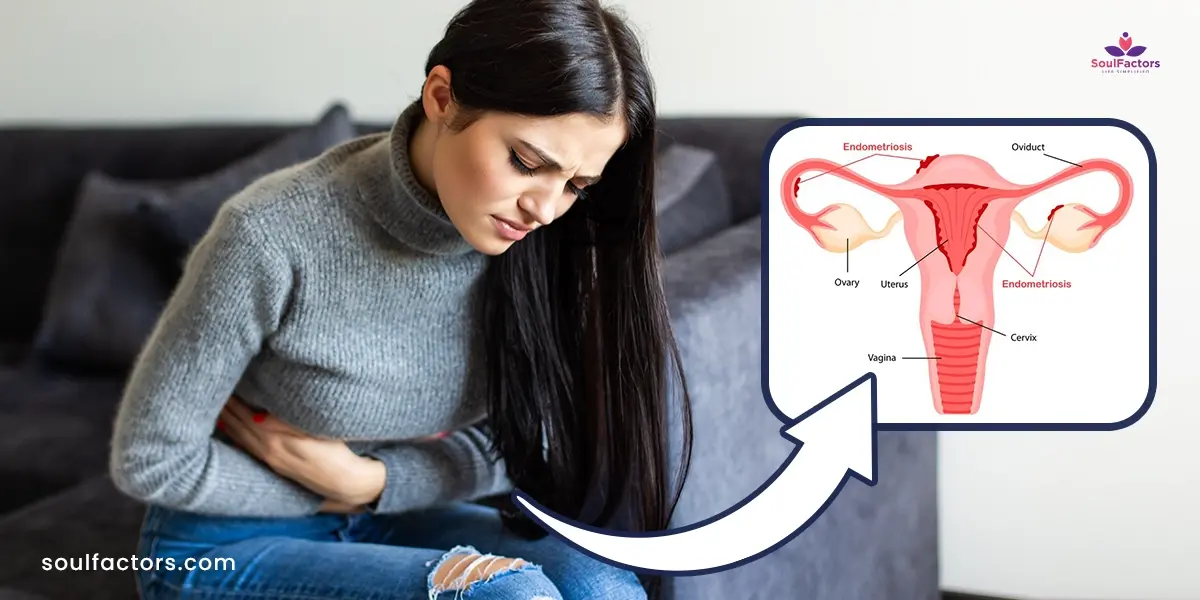
Normally, a woman has both female and male hormones in her body. However, female hormones (2) are present in larger quantities as compared to male hormones.
However, women with PCOS have more than the required male hormones, triggering the formation of fluid-filled cysts on the ovaries and the development of male-like features like excess body hair and weight gain around the abdomen.
Causes Of PCOS
Causes of PCOS include:
- Genetics
- Insulin resistance
- Being overweight
- Excessive inflammation
What Is Endometriosis?
Another common condition that is a problem for several women around the world is endometriosis. A study reveals that close to 10–15% of women are affected by it. (3) The condition is characterized by high levels of estradiol (an estrogen) and the formation of endometrial-like tissue in other areas of the body, typically on reproductive organs like the ovaries, fallopian tubes, the exterior of the uterus, and more.
In normal circumstances, the endometrial lining (endometrium) grows only inside the uterus, where it prepares it for an impending pregnancy. If pregnancy does not occur, this tissue breaks down and is shed as period blood out of the vagina.
But in women with endometriosis, the endometrial-like tissue formed on other organs also starts to bleed along with the inner endometrial tissue of the uterus. While the inner lining is expelled out of the vagina, the tissue in other organs fails to exit the body and results in internal bleeding. This causes pain and inflammation during the menstrual cycle.
Causes Of Endometriosis
Causes of endometriosis include:
- Genetics
- Retrograde menstruation
- Immune system disorder
- Surgery, like hysterectomy, causes the implantation of endometrial cells in the incision
- Transportation of endometrial cells to other body parts through the lymphatic system
How Do I Know If I Have Endometriosis Or PCOS?
If you want to know whether you have endometriosis or PCOS, pay close attention to your symptoms. While it is true that in the case of PCOS vs endometriosis, certain symptoms like excessive menstrual bleeding and trouble getting pregnant are common to both, there are several other distinct symptoms that indicate if a woman is affected by PCOS or endometriosis.
You have a high likelihood of having PCOS if you’re experiencing one or more of the following symptoms:
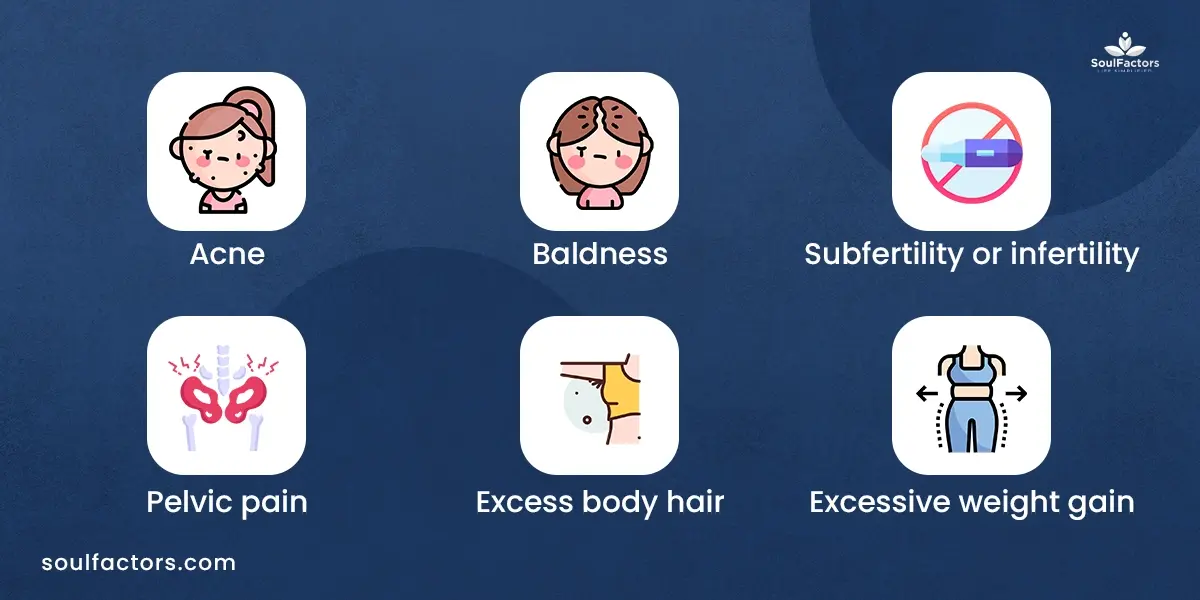
- Acne
- Baldness
- Anovulation
- Pelvic pain
- Excess body hair
- Subfertility or infertility
- Excessive weight gain
- Missed or irregular periods
- Insulin resistance and diabetes
- Excessive bleeding during periods
However, if it is endometriosis you’re dealing with, you will find yourself having the following symptoms:
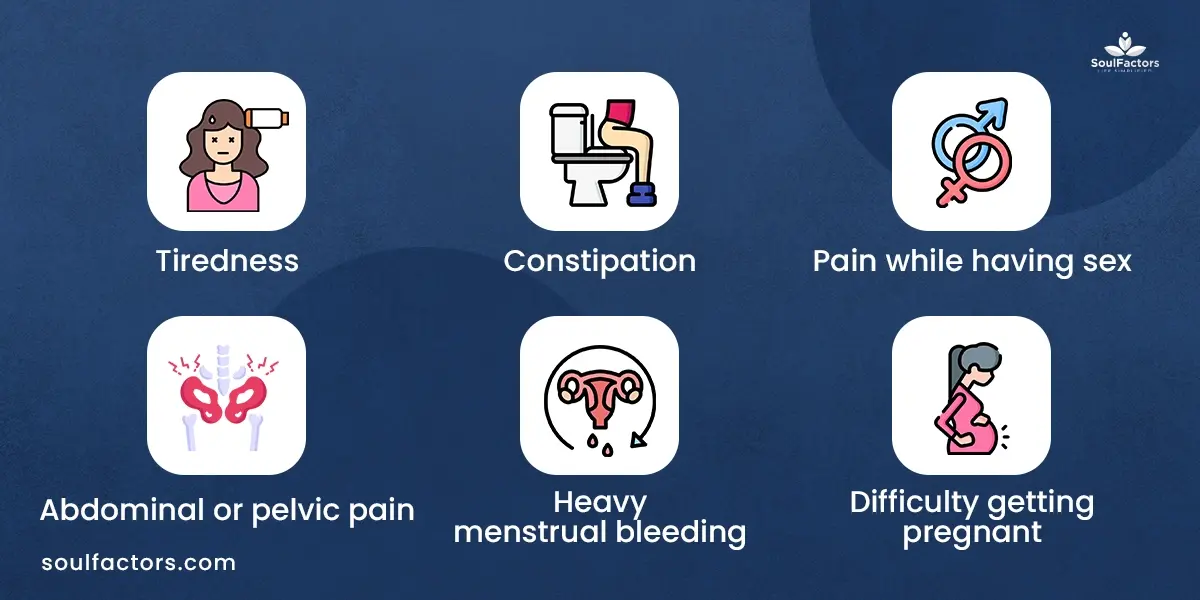
- Tiredness
- Constipation
- Rectal bleeding
- Pain while having sex
- Abdominal or pelvic pain
- Heavy menstrual bleeding
- Difficulty getting pregnant
- Pain during urination and bowel movements
One thing you must bear in mind here is that many women do not show any obvious symptoms, even if they are having one of the conditions we are talking about. For this reason, many women remain undiagnosed for a long period of time and may only develop concerns when they struggle to get pregnant.
PCOS Vs Endometriosis: Key Similarities
The first thing that comes to mind when thinking about PCOS Vs endometriosis is how the two are different. But before we discuss the differences, let’s see the key similarities that can make you wonder if it’s PCOS or endometriosis:
1. Both are associated with some form of hormonal imbalance.
With PCOS, you have insulin resistance and elevated levels of male hormones, a.k.a androgens, in the body. In contrast, endometriosis is linked to elevated estrogen production.
2. Both may lead to pelvic pain.
Pelvic pain is a common symptom of both PCOS and endometriosis. The pain can flare up during the period and is prominent in the lower abdomen below the belly button.
3. Both can cause fertility issues.
Irregular ovulation is responsible for making conception difficult in women with PCOS. On the other hand, adhesions, inflammation in pelvic organs, scarring in fallopian tubes, improper implantation, and altered pelvic anatomy can lead to infertility in women with endometriosis.
4. Both impact the quality of life of females of reproductive age.
Women fight with problems like irregular periods, chronic pelvic pain, and fertility issues if they have one or both of these conditions (yes! PCOS and endometriosis can together appear in a woman’s life). No wonder it impacts their quality of life by causing physical and emotional distress.
PCOS Vs Endometriosis: Key Differences
Now that you know on which grounds PCOS and endometriosis are similar, let’s take a look at their differences:
How does it manifest?
PCOS manifests in the form of multiple cysts appearing on the ovaries and high levels of androgens in the body.
On the contrary, endometriosis manifests as endometrial tissue growing on the body’s reproductive parts and sometimes in faraway areas of the body like the lungs, diaphragm, and intestines.
What causes the pain?
PCOS pain is mainly related to the enlargement and rupture of cysts that form on the ovaries due to this condition.
But endometriosis pain arises because the endometrial-like tissue formed outside the uterus starts bleeding during periods. This internal bleeding causes blood to touch other abdominal organs, causing irritation and inflammation, which ultimately causes pain.
Presentation of male-like characteristics
Male-like characteristics like hair loss resembling male-pattern baldness, acne, growth of excessive hair in unusual places like the upper lip, chin, etc., and putting on weight in the abdominal area(PCOS belly), which is a common trait in men, are associated with PCOS.
Women with endometriosis do not face this problem.
PCOS Vs Endometriosis: How Do Doctors Arrive At A Diagnosis?
PCOS Diagnosis:
There is no single definitive test that helps diagnose PCOS in women. Your doctor will likely take the following diagnostic approach to arrive at a conclusion.
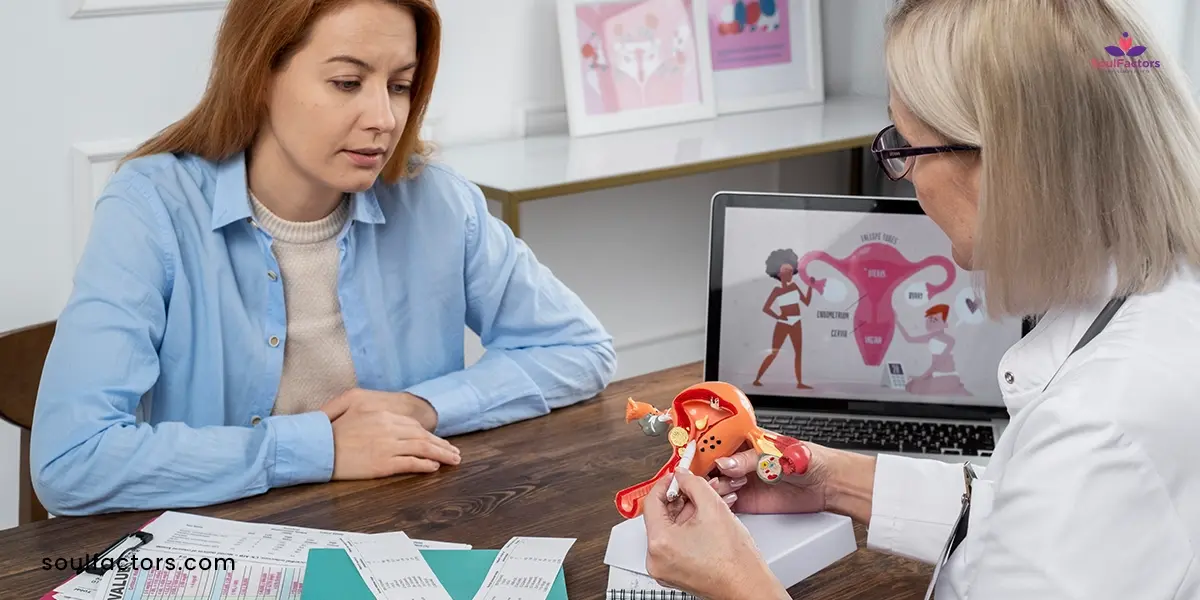
A. Medical and family history:
Your provider will ask you if any woman in your family has PCOS because this condition tends to run in families. You will be required to share the details of your medical history, too.
B. Physical exam:
Your doctor will then examine you to measure your BMI and see if you’re displaying signs of conditions that can lead to PCOS-related symptoms. You can also expect a pelvic exam if your doctor thinks it’s necessary to make the diagnosis.
C. Blood tests:
Next, you will be advised to do some blood work to check your thyroid function, androgen levels, cholesterol levels, and diabetes.
D. Pelvic ultrasound:
An ultrasound will help in studying your uterus and ovaries and see if there are any visible cysts on your ovaries.
Endometriosis Diagnosis:
The diagnosis of endometriosis is also done through a variety of tests. Your doctor will select which tests are most suitable for you and will suggest them accordingly. Here’s what you can expect:
A. Medical and family history:
Again, your doctor would like to know about your current medical conditions, if you have any, and check if you have a family history of endometriosis.
B. Pelvic exam:
Your doctor will palpate your pelvic area to check for scars or cysts due to endometriosis. You may be a little uncomfortable during the exam, but take it as the first step to getting better.
C. Ultrasound or MRI:
An ultrasound can help spot cysts or endometriomas associated with the condition. An MRI, also known as Magnetic Resonance Imaging, can gather images of your internal organs and identify the size of endometrial implants and where they are located.
D. Laparoscopy:
You may be advised to have a laparoscopy for the exact diagnosis of your condition. A surgeon will insert a laparoscope (a viewing instrument) through an incision in your abdomen and check for endometrial implants on other organs. The surgeon may also retrieve a sample of endometrial tissue for biopsy.
And yes, you will be under general anesthesia while all this happens, so there’s nothing to worry about!
PCOS Vs Endometriosis: What Are The Available Treatment Options?
Because PCOS and endometriosis cannot be cured, the main objective of treatment is to address the symptoms effectively. Endometriosis vs PCOS symptoms can vary quite a lot, so your doctor will plan your treatment based on which symptoms are bothering you.
Below are the various treatment options your doctor can advise you on:
PCOS Treatment
Lifestyle Modifications:
The first choice of treatment for managing PCOS symptoms is lifestyle modifications like regular exercise and consuming a healthy diet. Following them religiously can help you manage your weight, regularize your periods, and relieve PCOS symptoms.
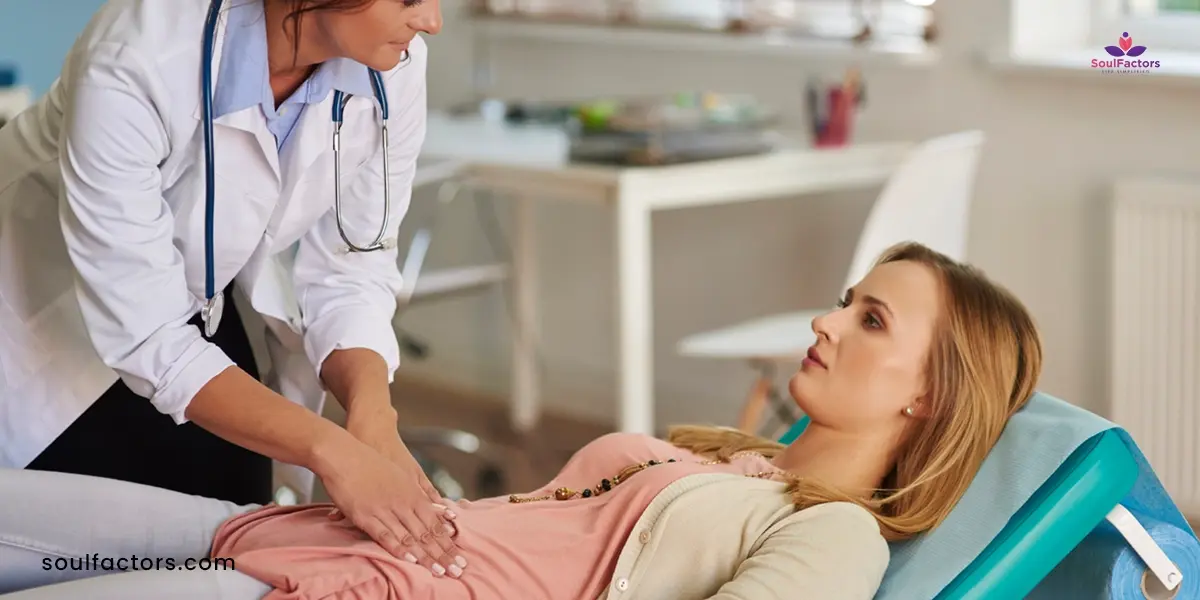
Medications:
Doctors often prescribe medications depending on whether the patient is looking to get pregnant or not. Those who are trying to conceive are given medications to trigger ovulation and improve their chances of getting pregnant. Others receive oral contraceptives and medications to lower androgen levels in the body.
In addition, doctors may also recommend medications for treating PCOS acne and excess hair growth.
Surgery:
Some women do not ovulate even after trying weight management and ovulation-inducing medications. In such cases, doctors may suggest Laparoscopic Ovarian Drilling. During this minor surgery, the ovaries are subjected to laser or heat to destroy areas of the ovaries that are producing excess androgens and subsequently support normal ovulation cycles.
Endometriosis Treatment
Eating Healthy:
Regularly eating a healthy diet comprising fruits and vegetables can help women with endometriosis. This fact was established by a study that revealed that the participants did enjoy improved well-being and reduced discomfort after practicing this approach.
Medications:
One of the most troubling problems of endometriosis is period pain, and it can be excruciating for some women. Therefore, doctors prescribe medications like NSAIDs to alleviate the pain and discomfort. You may also receive hormone therapy through hormonal contraceptives to regulate estrogen levels and curb the formation of endometrial tissue.
Surgery:
Nowadays, doctors prefer removing the unwanted growth of endometrial tissue outside the uterus while preserving the uterus so the chances of pregnancy don’t turn to nil. However, in some cases, removal of the uterus may be required.
PCOS Vs Endometriosis: Impact On Fertility
Unfortunately, both PCOS and endometriosis can impact a woman’s fertility and deter her chances of getting pregnant. But the good news is that fertility treatments are available to help women conceive even when they are struggling with one or both of these conditions.

How Does PCOS Affect Fertility?
The prime reason why you may have trouble conceiving if you have PCOS is that it leads to a hormonal imbalance, causing excess androgens in the body. This may hinder ovulation or stop it entirely. Because ovulation is essential for the release of an egg, a disruption in ovulation lowers the chances of getting pregnant.
Moreover, insulin resistance can further promote androgen production and lead to weight gain and type 2 diabetes. This can compound the problem further and may make these women more prone to developing gestational diabetes if they get pregnant, which can increase the risk of developing pregnancy complications.
The best way to minimize PCOS symptoms and improve your chances of getting pregnant is to follow your doctor’s advice. Take your medications (including anti-androgen drugs and ovulation-inducing medications) and set a goal to reduce 10% of your total body weight. This will significantly improve your chances of conception.
How Does Endometriosis Impact Fertility?
Endometriosis can also affect a woman’s ability to have a baby. The severity, however, depends on how much endometrial tissue is formed in the body and what its location is.
When the overgrowth of tissue blocks the fallopian tube, fertilization gets difficult as it stops the sperm from meeting the egg. Other physical issues linked to endometriosis, like inflammation and scarring, can also disrupt fertilization of the egg and/ or implantation.
If you have a mild case of endometriosis, you will likely do well with treatments like fertility drugs and insemination. For more difficult cases, in-vitro fertilization can be very effective in achieving pregnancy.
PCOS Vs Endometriosis: Which Is Worse?
Saying which of the two conditions is worse for fertility may not be appropriate because their impact on the ability to conceive is not the same for all women. Some may have a lesser impact, while others may have a more substantial impact on fertility.
The best way to know the extent of your condition and how it can impact your pregnancy outcomes is to talk to your healthcare provider. After running tests and understanding the degree of your condition, your provider will suggest treatment options to address fertility issues and help you achieve a successful pregnancy.
Can PCOS Turn Into Endometriosis?
PCOS and endometriosis are two very distinct medical conditions impacting a woman’s reproductive system. There is no possibility of one turning into the other, as both have their own causes and risk factors.
However, one study showed a significant association between endometriosis and PCOS-affected women, suggesting that they have a greater risk of developing endometriosis compared to those who do not have this condition. (4)
Is Endometriosis Curable?
Don’t be disheartened when we say that endometriosis is not curable. It may not be, but medical advancements have made it possible for doctors to manage patient symptoms through medicines and surgery. Even infertility issues arising due to endometriosis can be addressed with targeted treatment options.
Concluding Thoughts
PCOS vs endometriosis is a crucial subject that every girl or woman of reproductive age must be aware of. Both conditions have many distinct signs, but a few overlapping symptoms often give rise to confusion, making diagnosis truly essential.
As these conditions have the power to negatively impact your life and subject you to frustrating and long-term symptoms, having the right knowledge can help you look after your health and know when it’s time to seek help.

Subscribe to Newsletter
Elevate your routine, stay on trend, and embrace a personalized beauty journey with our curated insights.




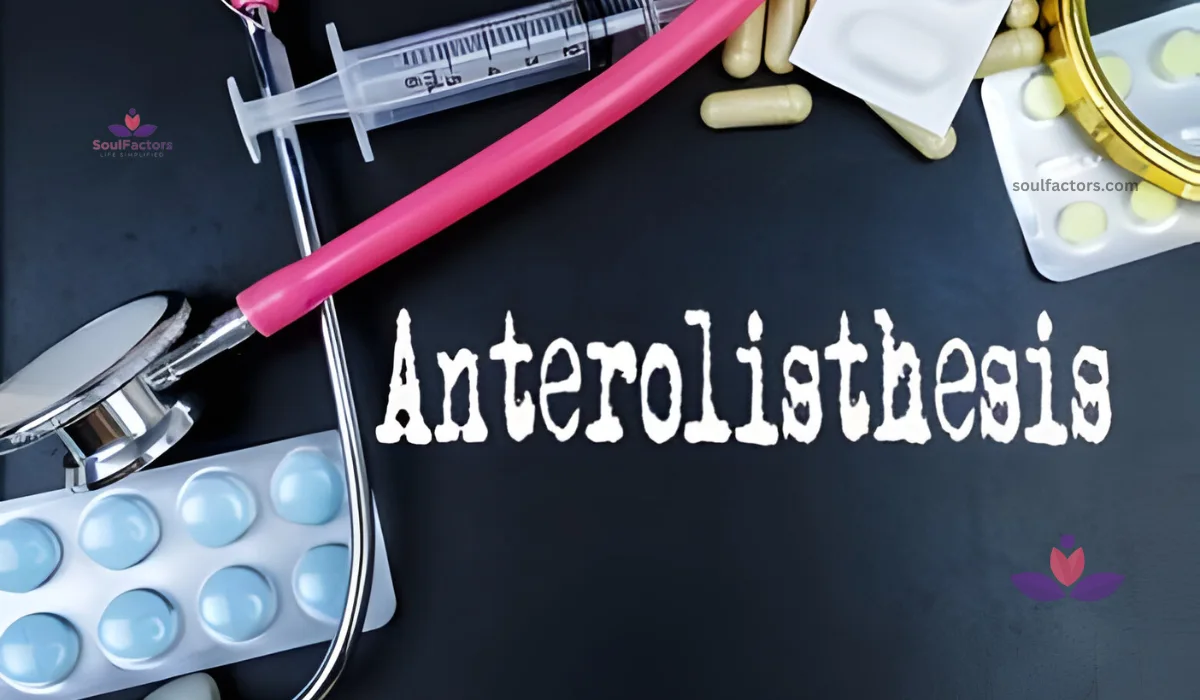
Write a Comment